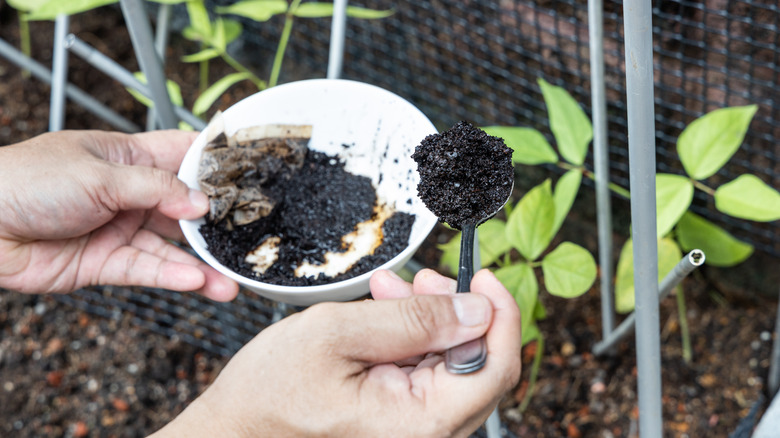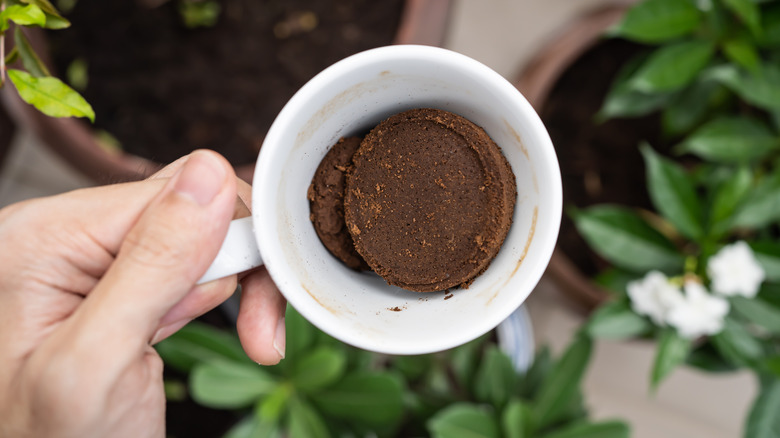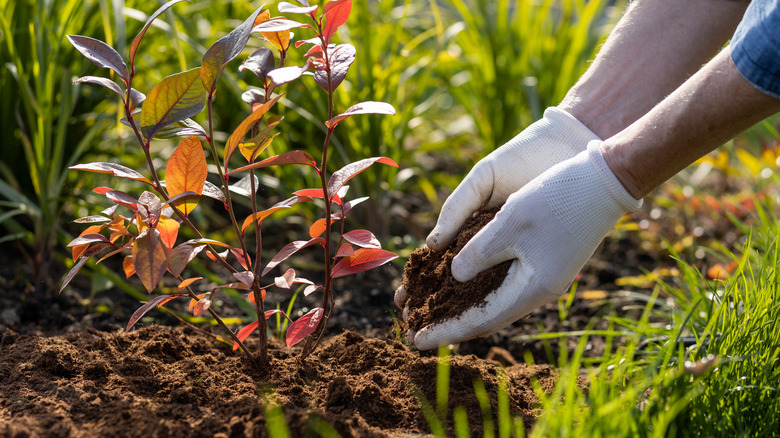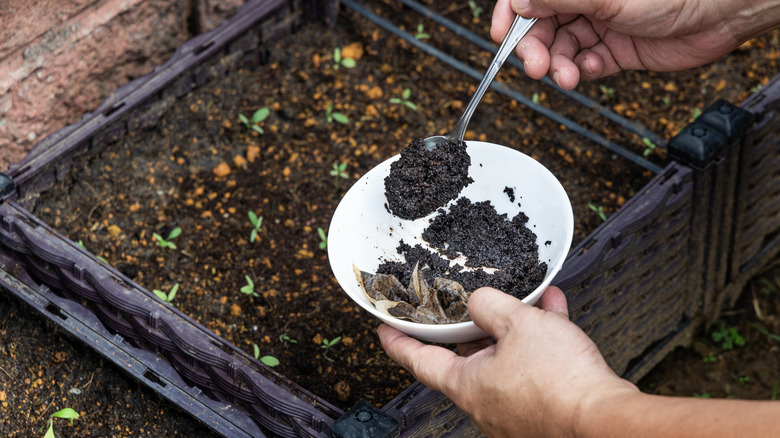Unexpected Ways To Use Coffee Grounds In Your Garden
Coffee definitely gives you all the energy you need to wake up early in the morning and deadhead your marigolds, but it may also be able to help your plants in other ways. Believe it or not, when you finish that fresh pot of coffee, you might want to save the grounds for your garden.
The best gardeners know that the secret to a "green thumb" is knowledge. Usually that means knowing all about your plants so that you know when they will bloom and what they need to thrive and understanding which plants grow best in your region so you know which ones to choose in the first place. Sometimes, however, it means knowing about dirt. Gardeners are also chemists, making sure the soil their plants grow in is rich with nutrients. Using coffee in your garden is still controversial. Some gardeners swear by it, while others claim it will ruin your flower beds. The science is still being studied, but excitingly, it looks like there are a few surprising ways you may be able to recycle your grounds in the garden.
Coffee grounds as fertilizer
There is limited scientific research on using coffee grounds as a fertilizer, but for many gardeners, the theory makes sense. Many believe that coffee grounds add nitrogen to your soil, which is essential for your plants' survival. Some gardeners even steep their coffee grounds overnight and then pour the liquid right onto their plants. Before dumping your coffee pot directly onto your garden, however, you may want to consider what plants you are trying to grow.
While many worry that it will make the soil too acidic, the majority of coffee's acid goes into the boiling water when you brew it, so the grounds shouldn't have much impact on your soil's acidity. However, one 2016 study in "Urban Forestry & Urban Greening," found that adding spent coffee grounds actually made their crops less successful. Other research has shown that coffee grounds make some plants, like geraniums, grow slower, but can improve the chances of others, like soybeans and cabbages. Some trial and error may be needed to see if straight coffee grounds are right for your garden.
Coffee as mulch
Depending on what kind of plants you're growing, mulch can be a great way to conserve water in your soil and keep the weeds from taking over and choking out your plants. Surprising as it may sound, used coffee grounds can be a great mulch for your garden. A 2016 study in "Urban Forestry & Urban Greening" found that adding coffee grounds to the soil significantly increased the soil's water holding capacity. In that particular case, the extra water was bad for their broccoli, leek, radish, viola, or sunflower crop while letting weeds thrive – but that doesn't mean it's wrong for your garden. If you are growing a particularly thirsty plant, coffee can help. Adding organic matter like coffee grounds doesn't just improve water retention, it can also boost your drainage and aeration.
To give this a try, you should start adding coffee grounds a little bit at a time, either in a thin layer or in combination with a coarser mulch like wood chips to keep the grounds from clumping up.
Coffee as compost
Adding compost is one of the best things you can do for your garden, reducing the need for pesticides, adding organic matter, and keeping the soil damp and nutritious for your plants. Coffee grounds make a fantastic addition to your compost heap. In addition to adding nitrogen, studies have shown that adding coffee grounds can help keep the temperature high in your compost heap for weeks, killing off pathogens.
Surprisingly, coffee grounds in compost may also kill slugs and snails in your garden. As described by a study from Oregon State University, coffee ground solutions have been shown to cause caffeine poisoning in slugs and snails, and there's a potential that using the grounds in your compost could have the same effect. While the potential for using coffee as pest control is intriguing, and slugs and snails can decimate your plants when they're out of control, you may want to consider whether or not you really want them gone – they can be vital decomposers in your garden and help your ecosystem thrive.



